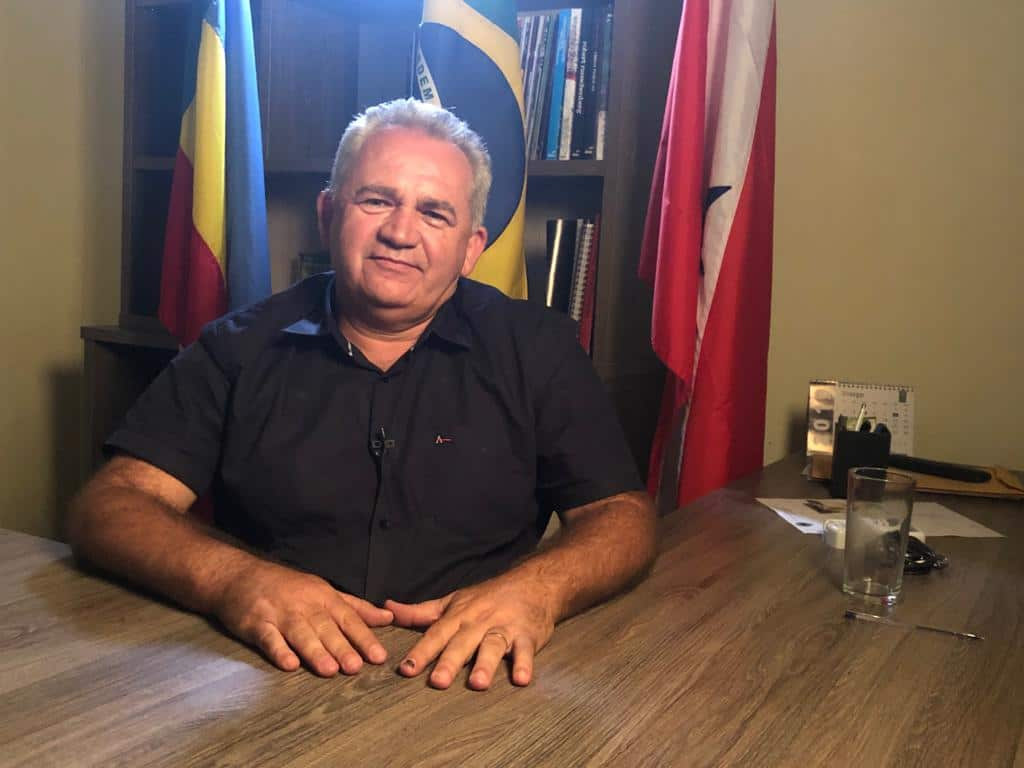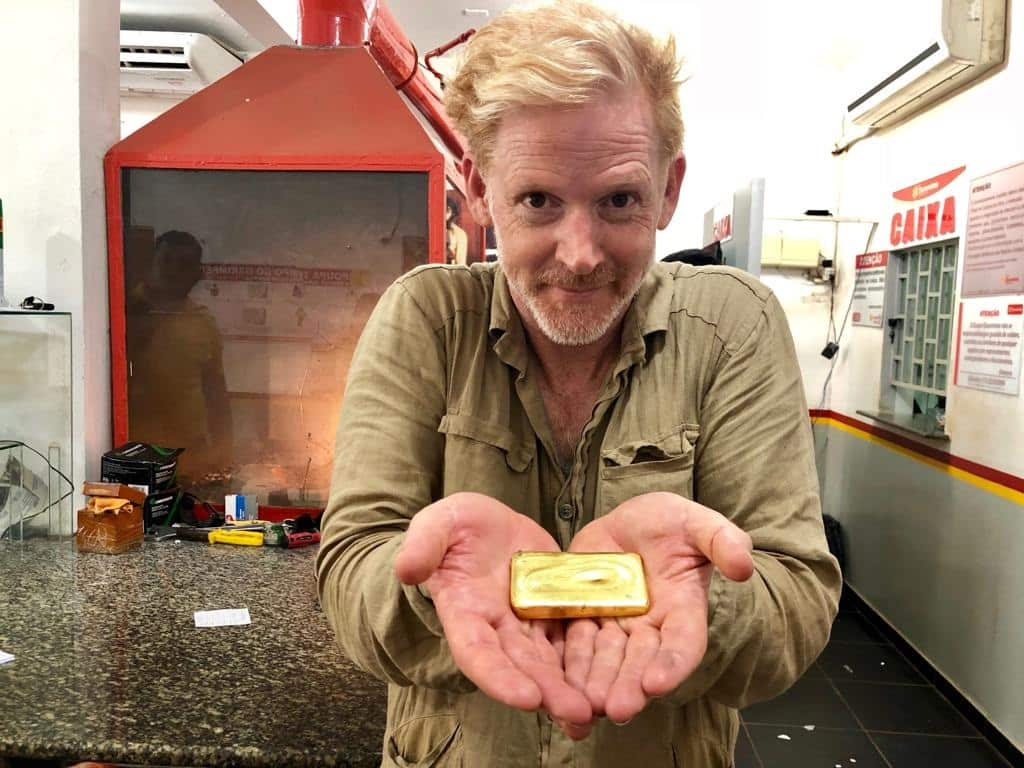Sometimes it’s the small talk, when the camera’s not rolling, that’s most revealing.
Driving along the dusty, red dirt roads between his many farms in the Brazilian Amazon, the mayor of Itaituba seemed to tire of talking politics with a journalist from SBS, and switched the subject to sex as soon as I put my camera down.
Valmir Climaco had been proudly showing me photos of his wife and children just an hour before, so I was startled when he began to talk, in graphic detail, about women he’d slept with during a trip to Portugal. The mayor had no idea how to find Australia on a map, but he seemed very curious about the sex lives of Australian men – and livestock. Showing me some of his cattle a little later, he paused to gaze at a group of bulls, one of which was mounting another, and asked, “Do you have faggot bulls, offering their arses?”
In a strange way, the mayor’s crudeness seemed appropriate. I’d come to Itaituba, a small, bustling port on the Tapajos River, to find out how people here were feeling about their equally crude new president, Jair Bolsonaro.

Three months earlier, Brazilians had elected a populist, far right candidate who’d told a congresswoman, “I would never rape you because you don’t deserve it”, and advised parents, “When your son starts getting a bit gay you slap him, and he changes his behaviour.” Some Bolsonaro supporters told me they were too worried about violent crime, political corruption and the country’s worst-ever recession to take offense at his outrageous statements. Others were nostalgic for the military dictatorship that ruled Brazil until 1985 - they were attracted to Bolsonaro, a former army captain who has advocated torture, precisely because of his macho posturing.
Unsurprisingly, the mayor of Itaituba is a big fan. “I have no doubt he’ll be a great president”, he told me. “A president for development.”
It’s the promise of development that had drawn me to this frontier town in the first place. Itaituba, 4,000km from Rio de Janiero, is a gateway to the riches of the Amazon, and Bolsonaro has promised to unlock that wealth, opening up the world’s largest rainforest to logging, mining and agriculture. The mayor told me that local landowners and businessmen were rubbing their hands together with excitement at the prospect.
Itaituba is already a transport hub for resources extracted, sometimes illegally, from the Amazon. Trucks piled high with timber emerge from the forest on roads that don’t appear on any official maps. Soybeans, one of the main drivers of deforestation, pass through town on their way north to Santarem, where they’re loaded onto cargo vessels at a port terminal built by Cargill, the American agribusiness giant. After visiting one of the town’s many gold shops, frequented by grizzled prospectors, I can report that holding a $50,000 bar of freshly smelted gold in the palm of my hand triggered an almost primal sense of greed.

When Mayor Valmir Climaco came to seek his fortune 41 years ago, there wasn’t much to Itaituba – it was just a single intersection of two, unpaved roads. He’d grown up in the north east of Brazil, the country’s most arid, impoverished region, and arrived here as an illiterate 17 year old, but he was also ambitious, industrious and resilient. He worked as an assistant in a shoe shop, and taught himself to read and write. Gold mining gave him his first taste of wealth, but living in the jungle also came at a high price – he caught hepatitis, barely survived a plane crash, and was widowed when his first wife died of malaria.
In many ways, the mayor’s story mirrors the battle between those who want to protect the Amazon, and those seeking to exploit it. Climaco settled here at a time when the military government was encouraging Brazilians to populate and develop the region – he saw himself as a pioneer. He started raising cattle on land he’d cleared of forest, eventually becoming the biggest landowner in town, but like most farmers here, he never had legal title to the properties. When the political climate changed, ushering in governments determined to crack down on deforestation, this self-made man realised with some bitterness that under the law, he was considered a criminal.
“I’ve even been convicted,” the mayor tells me. “I’m at risk of being jailed at any time because I did some clearing of forest 20 years ago and the government pursues those who work. What Bolsonaro has to do is to regularise those who did the deforestation.”
The pendulum is now swinging hard back in the other direction. Bolsonaro is undermining government agencies that protect the environment and Indigenous rights. Deforestation rates, already on the rise, increased dramatically during the election campaign; so too, since Bolsonaro became president, have attacks on Indigenous land. Major infrastructure projects are on the cards, such as a railway to transport soybeans through the Amazon, and a series of enormous hydroelectric dams on the Tapajos River not far from Itaituba.
The mayor is outraged at what he sees as foreign interference in the Amazon, by governments and NGOs pressuring Brazil to adopt strong environmental protections.
“Countries that have already deforested everything now want to save themselves by bossing around other countries…. And our president Bolsonaro, he now understands that our only boss is us, the Brazilians, with so much suffering, wanting to be a rich country.”
Bolsonaro just wants to make Brazil great again! If the mayor is in some ways a mini-Bolsonaro, it comes as no surprise to learn that Brazil’s president has been dubbed “Trump of the Tropics.” Last week he received a warm welcome at the White House, where he discussed trade and security with his namesake.
I imagined the mayor of Itaituba watching the news, rubbing his hands together with glee.
Dateline is an award-winning Australian, international documentary series airing for over 40 years. Each week Dateline scours the globe to bring you a world of daring stories. Read more about Dateline
Have a story or comment? Contact Us



